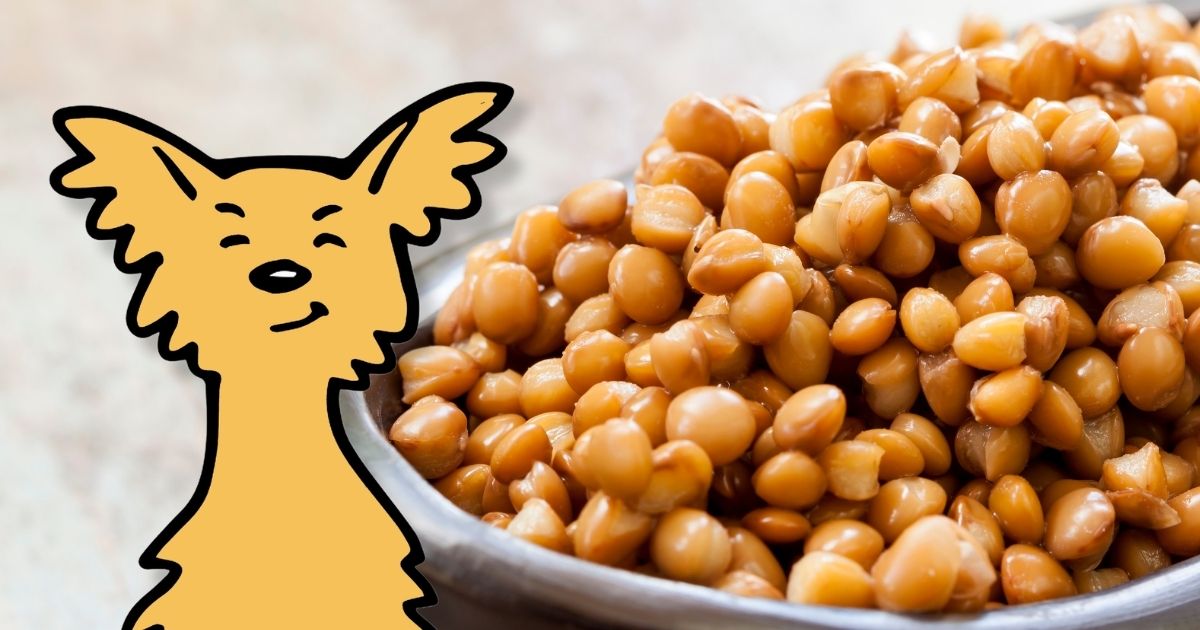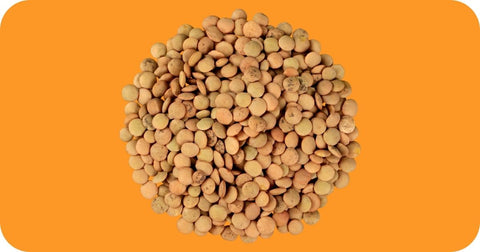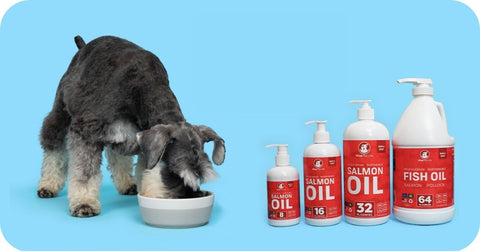
Can Dogs Eat Lentils? A Simple Guide for Dog Owners
March 08, 2024Lentils, those tiny legumes packed with protein and fiber, have found their way into many human diets as a nutritious and versatile food. As a conscientious dog owner, it's natural to wonder whether our furry companions can also partake in the lentil feast. In this exploration, we dive into the question: Can dogs eat lentils?
What are Lentils?

Lentils are small, lens-shaped seeds that belong to the legume family. Lentils are available in various colors, including green, brown, red, and black, and are renowned for their high protein and fiber content. Humans have incorporated them into many dishes, from soups to salads, as a wholesome and plant-based protein source.
Is it Okay for Dogs to Consume Lentils?
In moderation, lentils can be a safe and nutritious addition to a dog's diet. They offer a protein boost, essential amino acids, and dietary fiber. However, preparing lentils properly is crucial before offering them to your canine companion. Raw lentils may be difficult for dogs to digest, so they should be cooked thoroughly. Seasonings and additives, like salt and spices, should be avoided as they may upset your dog's stomach.
What Will Happen if a Dog Eats Lentils?
While lentils can be a healthy dog treat, excessive consumption or uncooked lentils can lead to digestive issues. Dogs may experience bloating, gas, or discomfort if lentils are not prepared adequately. Additionally, lentils contain certain compounds that can interfere with nutrient absorption, so they should be part of a balanced diet rather than a primary food source.
Navigating the Lentil-Laden Situation
Dogs, being curious creatures, might occasionally indulge in human food, and lentils are no exception. In general, a modest intake of properly cooked lentils is unlikely to cause harm to your furry friend. Lentils, when prepared without harmful additives or excessive seasoning, can even offer some nutritional benefits to dogs.

After the impromptu lentil feast, keeping a close eye on your dog for any signs of digestive distress is crucial. Common indicators include vomiting, diarrhea, or lethargy. While a small serving of lentils is generally well-tolerated, individual dogs may react differently to new foods. If you notice any unusual behavior or symptoms, it's best to err on the side of caution and seek guidance from your veterinarian.

While lentils are a source of protein and fiber, they also contain complex carbohydrates that might pose challenges for some dogs. Excessive lentil consumption can lead to bloating and gas, causing discomfort for your pet. Additionally, lentils contain compounds that could interfere with nutrient absorption, emphasizing the importance of moderation in incorporating them into your dog's diet.

If you notice any adverse reactions or persistent digestive issues, contacting your veterinarian is the wisest course of action. Veterinarians possess the expertise to assess your dog's condition and provide tailored advice based on breed, size, and overall health.
When contacting your veterinarian, be prepared to provide details such as the type and amount of lentils consumed, the presence of any additional seasonings, and the time that has elapsed since ingestion. This information aids in their assessment of the situation and helps determine the appropriate course of action.
The Role of Salmon Oil in Soothing Discomfort:

In such situations, including salmon oil in your dog's diet can offer unexpected benefits. The omega-3 fatty acids in salmon oil for dogs have anti-inflammatory properties that may help soothe any irritation or inflammation caused by the lentils. Furthermore, the omega-3s contribute to overall canine health, supporting skin and coat health, joint function, and immune system function.
Conclusion
While a small adventure into the world of lentils might not cause panic, vigilance is key. Monitor your dog for any signs of discomfort, and don't hesitate to consult your veterinarian if needed. Introducing salmon oil into your dog's diet can be a proactive measure to support their well-being and aid in a swift recovery from any digestive upset caused by unexpected lentil consumption.
